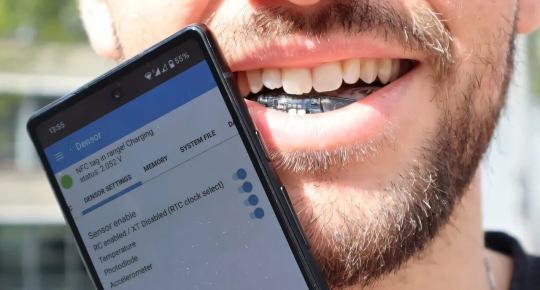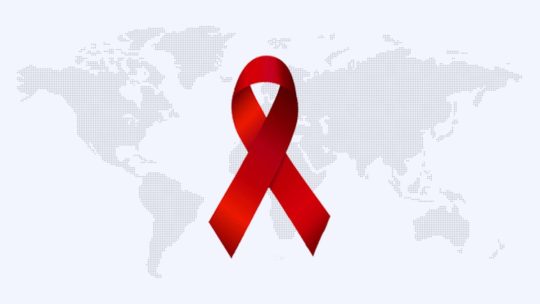#Digital health
Explore tagged Tumblr posts
Text

PERMA Integrated Health- combines positive psychology and healthcare technology to enhance well-being, reduce burnout, and drive digital health innovation. https://permaintegratedhealth.com/
4 notes
·
View notes
Text
youtube
Infermedica AI in Healthcare: Beyond Thinking Like a Doctor
In this insightful video, we explore the groundbreaking role of Infermedica AI in healthcare.Learn how advanced AI technologies are transforming medical diagnostics by going beyond simply mimicking a doctor's thought process. Discover how Infermedicaenhances patient care, improves diagnosis accuracy, and empowers healthcare professionals. This video dives into the future of AI in the medical field and its potential to revolutionize healthcare delivery worldwide.
#Infermedica#AI in healthcare#medical AI#healthcare technology#AI diagnostics#healthcare innovation#digital health#artificial intelligence#future of medicine#healthcare revolution#Youtube
2 notes
·
View notes
Text
Researchers develop Densor: A battery-free, smartphone-compatible oral health sensor

- By InnoNurse Staff -
Researchers at TU Delft, in collaboration with Radboudumc, have developed Densor, a revolutionary battery-free sensor platform designed to be worn in the mouth using a dental brace or bite splint.
This open-source technology collects vital health data such as body temperature and jaw movements, offering a user-friendly and long-term solution for oral health monitoring. Uniquely, it requires only a smartphone for charging and data collection.
Published in Proceedings of the ACM on Interactive, Mobile, Wearable and Ubiquitous Technologies, Densor could transform fields like sleep research, dental care, and apnea diagnosis. It distinguishes between activities such as swallowing and speaking with greater precision than traditional methods and supports future applications like acid reflux detection and saliva monitoring.
By offering accessible, real-time health insights, Densor represents a significant leap in preventive and diagnostic healthcare. Researchers aim to enhance the platform with additional sensors and broader capabilities, paving the way for interdisciplinary applications.
youtube
Video: "Battery-free sensor brace reveals crucial health data via smartphone" by TU Delft, YouTube.
Header image credit: Delft University of Technology/Radboudumc.
Read more at Delft University of Technology (TU Delft)
///
Other recent news
Roon secures $15M funding to provide expert healthcare answers and move beyond "Dr. Google" (Tech Funding News)
2 notes
·
View notes
Link
The University of Queensland researchers have developed a comprehensive plan outlining the integration of smartwatches into Australia’s healthcare system. However, the researchers agree that significant obstacles must be solved before this becomes a reality.
A significant change in how we monitor our health and general well-being has resulted from recent technological advancements. The smartwatch is one such device with enormous promise. Smartwatches, initially offered as a convenient extension of our cellphones, are now recognized as essential aids in chronic disease prevention. Smart wearables provide numerous capabilities that help people to take control of their health and make good and timely decisions.
The ability of smartwatches to continuously monitor important health metrics is one of its main advantages. Smartwatches can identify anomalies or changes in health measurements and provide early warning indications of potential chronic illnesses by gathering and analyzing this data. Users can obtain insightful information on their general health, enabling them to take proactive measures to treat any new health problems before they worsen.
The delivery of personalized healthcare to those with illnesses like obesity, diabetes, and arthritis could be changed entirely by smartwatches. By utilizing smartwatches, a comprehensive evaluation of a patient’s well-being can be conducted, allowing for personalized care and attention.
Continue Reading
41 notes
·
View notes
Text
digital health's bust was always when
happened across digital health recently. while the category itself had a hard time defining itself and what it is to the rest of the world (including healthcare consumers), it has fumbled and stumbled along mostly on bridge financing by investors hoping that an exit could exist somewhere. it likely won't. it is a great lesson. 1. the industry was never going to take anything from healthcare. only healthcare industry can/will kill itself. spunky "unicorn" making an app won't cut it (that is why it did not). 2. how not to marry an audience/customer base to a new innovation/idea.
in reality, healthcare companies could always build these innovations and move customers to them. why would they, really? that's not how innovation works when you have millions to lose, even if it means gaining millions later. you instead try to milk the existing revenue as much as you can, keep it in tact as long as you can, and when you need to, move it along.
which is exactly what happened with digital health.
most founders and investors don't have the patience to navigate, disrupt and change highly regulated industries like this one. this largely in part because the tech/digital industry's roots are software, the kind of things companies installed on computers for productivity help, and so on. it's a big jump to take that scalable model that has little red tape and apply it to a big key player like healthcare with tons of obstacles.
not that it can't be done, just would take something few have. And, there are other ways to make money, and so on.
it doesn't mean that "digital health" won't exist. it means it already does, and unicorns/investors have not succeeded in the end. will it change? maybe. is it likely? no. no reason to participate in a place that is extra hard to make money when you can move onto other things.
this, of course, is what went on there. none of this is a surprise, anyone with any experience in tech, innovation, etc. would recognize this all along, and understood the play.
AI/genAI won't 'save' what was never a good idea/approach in the first place.
2 notes
·
View notes
Text
set a screen timer for tumblr reddit and yt assuming I'd stop wasting so much time on my phone if I was locked out of them after a certain amount of time. so instead I spent the better part of yesterday afternoon scrolling through christies auctions of historical artifacts and looking up any cool lots on Wikipedia. learned about two new kinds of knives, spent exactly 0 fewer hours online.
2 notes
·
View notes
Text
Revealing Facts: A Helpful Guide on HIV/AIDS

You can have HIV without having any symptoms. This is why it’s extremely important to get tested regularly, even if you don’t feel sick.
According to WHO, the cases of HIV/AIDS have increased lately. HIV (Human Immunodeficiency Virus) is a virus that attacks a specific type of cell in your body’s immune system, which helps the system in fighting off infections and diseases. If HIV progresses, it can lead to AIDS, a more severe condition where the immune system is badly damaged. HIV is transmitted through unprotected sexual intercourse, sharing needles, or from an infected mother to her baby during childbirth or breastfeeding. There are different symptoms at each stage of infection. Having these symptoms may suggest a person has HIV. If left untreated, HIV can lead tseo more serious health issues.
Having accurate information is crucial to avoid any false assumptions related to HIV/AIDS. HIV/AIDS is surrounded by many myths and misunderstandings such as; it is spread through sneezing, coughing or sharing drinks. This is not true, the way it is transmitted is through specific bodily fluids such as blood, semen, vaginal fluids, and breast milk.
In a world where misinformation about HIV/AIDS is prevalent, it's crucial to clear up these misunderstandings and ensure everyone knows the facts. Normalising getting tested is the first step in managing the virus and preventing the spread of false stigmas about HIV. Let's all do our part by sharing the correct information and supporting those dealing with HIV to create a world without judgement and false ideas about this virus.
To know more about HIV/AIDS its symptoms, unknown facts, and risk factors, read the blog on Riomed's site.
3 notes
·
View notes
Text
Scrolling the content stream. It’s pretty repetitive and basic and even boring right? Sure bits of intrigue and dopamine. But sometimes real world interactions are more compelling precisely because of the easy mundanity of other people, of the impenetrable weirdness of a person vs the entirely-too-accessible stream of content made to be easily digested mush. Does this make sense? I think it does. Sometimes the real comfort app is human beinms
#monthly update post that i still belive in humanity#im reading society of the spectacle finally#(trying to read)#content#phone bad#digital health#phone addiction#talking to people consistently reinvigorates me#I should do it more#innate beauty of life#innate? maybe not#I think I’m gonna start just posting fragments of stuff from my writings#like trying to siphon out the rampant pseudo intellectual sophistry stuff#anyway#posting
4 notes
·
View notes
Text
Digital Transformations in Healthcare by Netmark: Innovating Member Experiences
Explore how Netmark is driving digital transformations in healthcare with mobile health platforms, AI-powered solutions, and telemedicine integration. Enhance member satisfaction, streamline operations, and modernize healthcare delivery with our innovative and scalable solutions.
0 notes
Text
🚀 AI is transforming healthcare! Discover the 5 companies leading the charge in 2025. 💡 From early disease detection to personalized medicine, see how AI is revolutionizing patient care. Read more #AIinHealthcare #HealthTech #Innovation
#AI Companies#AI Diagnostics#AI in Healthcare#Digital Health#healthcare innovation#Precision Medicine#Tech Trends 2025
0 notes
Text
Healthify aims for profitable India business amid US entry and AI innovations
“January and February were cash flow positive,” company co-founder and CEO Tushar Vashisht said, adding that he wanted to ensure that Healthify’s India business remained profitable. It took the company nearly 13 years to reach this point, having been founded in 2012. The company’s plan for 2025 is laid out: “Scaling a small but growing US business, handling a profitable India business, and…
#AI coaching#AI-powered health#B2B health solutions India#calorie tracking#corporate wellness#digital health#digital wellness#fitness and nutrition India#fitness app#health subscriptions#health tech India#Healthify#weight management#wellness startup
0 notes
Text
The Future of Pharmaceutical Companies: Innovations, Trends, and Consumer Insights
Table of Contents Introduction The Role of AI in Pharmaceuticals Key Trends Shaping the Industry How to Choose the Right Pharmaceutical Products AI Overview: Smart Drug Discovery and Development Featured Snippets & AEO Optimization for Pharma GEO Targeting for Local and Global Reach FAQs About Pharmaceutical Industry People Also Ask (PAA) People Also Search (PAS) Case Studies:…
#ai#AI drug trials#AI healthcare#AI in pharma#artificial-intelligence#big data in healthcare#Biotechnology#clinical research#digital health#drug development#drug safety#FDA approval#health#healthcare#healthcare revolution#healthcare technology#medical breakthroughs#medical technology#patient care#personalized medicine#pharma business#pharma future#pharma innovation#pharma marketing#pharma regulations#pharmaceutical trends#regenerative medicine#smart drug discovery#technology#telemedicine
0 notes
Text
Denmark: A significant healthtech hub

- By InnoNurse Staff -
According to data platform Dealroom, Danish healthtech firms raised a stunning $835 million in 2023, an 11% rise over the previous record set in 2021.
Read more at Tech.eu
///
Other recent news and insights
A 'Smart glove' could improve the hand movement of stroke sufferers (The University of British Columbia)
Oxford Medical Simulation raises $12.6 million in Series A funding to address the significant healthcare training gap through virtual reality (Oxford Medical Simulation/PRNewswire)
PathKeeper's innovative camera and AI software for spinal surgery (PathKeeper/PRNewswire)
Ezdehar invests $10 million in Yodawy to acquire a minority stake in the Egyptian healthtech (Bendada.com)
#denmark#startups#innovation#smart glove#stroke#neuroscience#iot#Oxford Medical Simulation#health tech#digital health#medtech#education#pathkeeper#ai#computer vision#surgery#ezdehar#yodawy#egypt#mena
13 notes
·
View notes
Text
Apple and Google’s screen time reports won’t get you off Instagram and TikTok. This will. | Vox
0 notes
Text
Integrating Technology in Healthcare: Insights for PGDM Students in Healthcare Management Colleges in India

#Healthcare Innovation#PGDM#Tech in Healthcare#Future Leaders#Healthcare Management#AI in Healthcare#Telemedicine#Data Analytics#Health Tech#Digital Health#Healthcare Transformation#Leadership in Healthcare#Health Tech Trends
1 note
·
View note
Text
HIMSS25: Day 2 highlights

- By Danielle Siarri , Nuadox -
Here are our Day 2 highlights of the 2025 HIMSS Global Health Conference & Exhibition in Las Vegas (March 3-6).
WHO/Europe and HIMSS Strengthen Digital Health Collaboration Amid U.S. WHO Withdrawal
The World Health Organization's European Region (WHO/Europe) and the Healthcare Information and Management Systems Society (HIMSS) have reinforced their partnership to advance digital health initiatives. In September 2022, the two organizations signed a Memorandum of Understanding (MoU) to enhance healthcare systems across the 53 member states of the WHO European Region through data and technology-driven strategies.
Key Focus Areas of the Collaboration
Enhancing Digital Competencies: The initiative aims to equip healthcare professionals with essential digital skills, ensuring they can effectively navigate evolving health technologies.
Monitoring Implementation Progress: The collaboration includes tracking and assessing digital health adoption across the region, promoting continuous improvement.
Establishing Strategic Partnerships: WHO/Europe seeks to build a transatlantic coalition for digital health by engaging HIMSS and other key stakeholders to foster international cooperation and knowledge exchange.
These initiatives are designed to drive the digital transformation of healthcare systems, improving delivery and outcomes across the European Region.
U.S. Withdrawal from WHO and Its Implications
As of March 2025, the United States has initiated the process of withdrawing from the World Health Organization (WHO). On January 20, 2025, Executive Order 14155, titled "Withdrawing the United States from the World Health Organization," was issued, officially beginning the formal withdrawal process. According to the United Nations, the withdrawal is set to take effect in January 2026.
Despite this development, U.S. health agencies, including the Centers for Disease Control and Prevention (CDC) and the Food and Drug Administration (FDA), continue to participate in WHO meetings and activities. For instance, they recently attended a WHO meeting on influenza vaccine composition. Additionally, the U.S. remains a member of the Pan American Health Organization (PAHO), the WHO’s regional office for the Americas.
The withdrawal has raised concerns regarding its potential impact on global health initiatives. WHO officials warn that reduced U.S. funding could delay efforts such as polio eradication, potentially increasing cases and raising costs.
Insights from CEO Hal Wolf
At HIMSS 2025, I had the opportunity to speak with HIMSS CEO Hal Wolf about the implications of the U.S. withdrawal and its impact on the conference.
Have U.S. government officials withdrawn from HIMSS 2025 due to the communications blackout?
Wolf confirmed that 200 attendees from the U.S. Department of Defense (DOD) withdrew their participation. Despite this, overall attendance has grown, reaching 28,000 attendees compared to 26,000 last year. HIMSS has focused on attracting decision-makers and high-level professionals to the event.
How will the U.S. withdrawal from WHO impact HIMSS' collaborative efforts with WHO/Europe?
According to Wolf, "We are doubling our efforts as an NGO with the WHO in our collaboration efforts." He cited a recent MoU with Romania as an example of continued partnerships, emphasizing that HIMSS remains committed to global digital health initiatives.
Future of Healthcare Economics and Revenue Cycles
Wolf also shared insights into the financial outlook for U.S. healthcare institutions:
"Fifty percent of U.S. hospital revenue comes from the federal government," he noted.
The forecast for 2026 suggests reduced funding for healthcare facilities, prompting organizations to prepare accordingly.
Innovations at the HIMSS French Pavilion
The HIMSS French Pavilion featured several groundbreaking companies, particularly in AI and robotics:
Incepto (Incepto Medical): An AI-driven medical imaging company expanding into the U.S. market. Its solutions, developed by radiologists, generate clinical reports, including ICD and CPT codes.
Mirokaï (Enchanted Tools): An interactive robot designed to support pediatric oncology patients in long-term care facilities. Mirokaï engages users in multiple languages and is programmed to bring comfort and joy to patients.
Türkiye’s Digital Health Advancements
Türkiye continues to make significant strides in digital health, improving hospital systems through collaboration with HIMSS and the Ministry of Health.
The country has successfully implemented tracking for in-dwelling medical devices in patients.
Türkiye’s Health Ministry emphasizes a "One Health" approach, monitoring diseases across human and animal populations for better global disease control.
Stay tuned for Day 3…
Header image: Mirokaï humanoid robot. Credit: Danielle Siarri.
Read Also
HIMSS25: Day 1 highlights
HIMSS25: Day 3 highlights
HIMSS25: Day 4 highlights
#himss25#himss#events#healthcare#turkiye#france#robotics#ai#imaging#international politics#politics#who#europe#usa#health tech#medtech#digital health#danielle siarri
0 notes